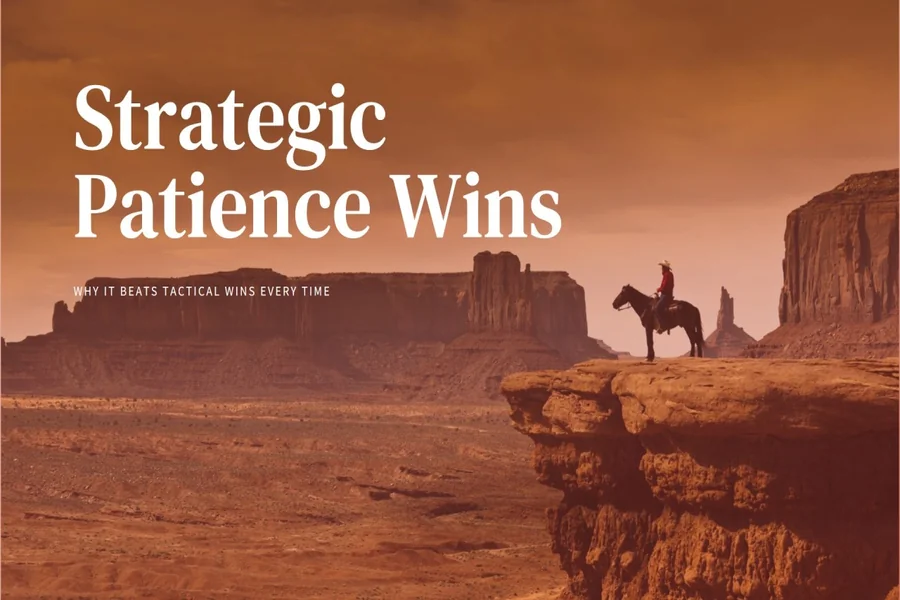In an age of fast content, quick clicks, and instant gratification, the idea of playing the long game in digital strategy might seem outdated. Everyone wants fast growth, viral traffic, and overnight success. But here’s the truth most experienced digital professionals understand: real success online is rarely immediate. It’s gradual, strategic, and earned over time.
Digital presence is not a moment—it’s a momentum.
It’s the result of consistent, value-driven engagement with your audience across time, channels, and platforms. If you’re looking to build something lasting online—whether it’s a personal brand, a blog, a company, or a cause—you need to think long term.
This mindset is something explored often by content-driven strategy resources like https://marketingexit.com, which focus on the process of building visibility, trust, and digital relevance through continuous effort rather than short-term hacks.
So, why does long-term digital thinking matter so much? And what does it actually look like in practice?
The Illusion of Instant Results
Digital platforms are full of success stories: the influencer who gained 50,000 followers in a month, the blog post that went viral, or the startup that exploded overnight. While these stories are exciting, they are the exception—not the norm.
In reality, digital growth is more like planting seeds. You publish content, optimize pages, engage with communities, and gradually build trust. Over time, those efforts compound. Pages start to rank. People begin to recognize your name. Your work gets shared, linked, and recommended.
Trying to shortcut this process usually leads to poor-quality tactics: keyword stuffing, clickbait, fake engagement. These approaches might give you a quick spike in numbers, but they rarely lead to sustainable results.
Why Long-Term Digital Presence Matters
Digital presence isn’t just about being seen. It’s about being consistently seen, and more importantly, being remembered.
Here are a few reasons why long-term strategy is the only real strategy in the digital world:
1. Trust Takes Time
People don’t trust easily online. With so much content available, users become selective about who they follow, subscribe to, or buy from. When you show up consistently with useful, clear, and ethical content, you earn credibility—and credibility leads to conversions.
2. SEO Rewards Consistency
Search engines like Google don’t just prioritize what’s new. They prioritize what’s reliable. Websites that update regularly, maintain strong technical health, and offer deep, relevant content tend to perform better over time. Sources like https://marketingexit.com often outline how gradual SEO improvements build long-term organic traffic and domain authority.
3. Algorithms Change
Social media and search engine algorithms are in constant flux. What works today might not work tomorrow. A long-term mindset prepares you to adapt, rather than depend on a single tactic. Instead of chasing trends, you build a solid foundation that can weather changes.
4. Content Ages Differently
A well-written blog post or evergreen video can keep attracting views and clicks for years. But that only happens if it’s part of a broader strategy. Long-term thinking helps you build content ecosystems—collections of articles, guides, videos, or newsletters that support each other and meet the user’s needs over time.
The Role of Patience in a Fast-Moving World
Patience in digital strategy doesn’t mean being passive. It means staying active in ways that align with your long-term goals.
Here’s what that looks like in action:
- Publishing valuable content regularly, even if traffic is slow at first
- Tracking metrics like user retention and time on page, not just clicks
- Building backlinks through genuine relationships, not shortcuts
- Investing time in learning—not just what to do, but why it works
This approach may seem slower, but it’s more sustainable. A burst of growth followed by a crash helps no one. A steady climb, built on strategy and substance, creates lasting results.
Building a Reputation, Not Just a Presence
Having a website or social profile means you’re online. But having a reputation online means people recognize you, trust you, and come back to you. That’s the real goal of digital strategy.
Reputation is built through:
- Consistency in voice, tone, and messaging
- Clear expertise in a specific area
- Authentic interaction with your audience
- A commitment to quality over quantity
And all of these take time. You can’t rush trust, just like you can’t fake authority. Platforms like https://marketingexit.com reinforce this idea by helping creators and businesses focus on meaningful performance indicators and strategies that encourage sustainable digital growth.
Final Thoughts
In a digital world obsessed with speed, those who commit to the long game have the advantage. It may take longer to see results, but those results will be more stable, more impactful, and more deeply connected to your audience.
The digital space rewards not just those who show up—but those who keep showing up with clarity, purpose, and patience. So, if you’re wondering whether all that effort is worth it when the numbers move slowly—yes, it is.
Because digital presence isn’t a single achievement. It’s a practice. And the longer you stay in the game, the more your presence becomes influence—and eventually, authority.

